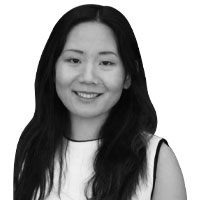Since she graduated from college last year, Ziyi Zuo has left two well-paid jobs in Shenzhen and Beijing. The 22-year-old who is now unemployed has returned home to Tianjin in northeast China to embrace “lying flat,” a growing movement in China where young people are rejecting traditional Chinese competitiveness.
The Chinese Communist Party has clamped down on people sharing the new philosophy online but in an increasingly rigid social structure with a large wealth gap, the movement is proving irresistible.
“I felt consumed by work,” Zuo said. “My job every day couldn’t give me the feeling of satisfaction that I learned something new or that I realized my value.”
Lying flat, or tang ping in Chinese, describes a phenomenon among young people who, instead of striving for higher pay and social status in life, choose to simply lie down and give the bare minimum. It gained traction quickly after a now-deleted post on Tieba, a Chinese forum site, coined the word as a life philosophy. On Douban, a social platform and China’s version of IMDb, a group named “lying flat group” had 10,000 members before being taken down in May. Internet memes, T-shirts, and garments also started appearing online.
The internet buzzword means many things. Simply put, many who embrace the attitude choose not to work hard, not to buy apartments or cars, and not to get married or have children—things Chinese society expects a responsible, functional adult to do. But they all seem to reflect one attitude, defined by an op-ed in the South China Morning Post, that represents “a silent protest to unfairness, often the result of structural and institutional factors that can no longer be altered by personal efforts.”
To many, Yanlin Li, a 24-year-old Columbia University graduate, seems overqualified for a job at a Beijing bank. But fed up with the nights she skipped dinner to finish a data report, and the hours she spent studying for investment exams to no avail, Li settled for something stable.
“There are many class-defined things that I just can’t overcome,” she told The Daily Beast. “For the older generations, if you work hard for something, there’s a big chance that you will succeed. But for us, society is different. There are many things you can’t get even if you work hard for it.”
Official media took notice shortly after the concept of lying flat became a hit on China’s social media. Guangming Daily, a house organ of the Communist Party’s propaganda department, published an article criticizing the lifestyle as an avoidance of stress, saying that it “obviously is not beneficial for economic and social development.” Guangzhou-based Nanfang Daily, another government mouthpiece, also chastised the attitude as “not only unjustified, but also shameful. Such ‘toxic chicken soup’ has no value whatsoever.” Zhihu, China’s Quora-like platform, also banned the search term “lying-flatism.”
Most recently, the Party’s network management office demanded major e-commerce platforms remove any products touting “lying down” or neijuan before June 21, a source told China Digital Times.
Neijuan, which translates as involution, is the driving force behind the lying flat movement.
The Chinese news site Sixth Tone describes it as “the opposite of evolution,” meaning people are trapped in vicious cycles of over-competition which stop them from moving on, growing or benefiting.
For Zuo, the word manifests itself in being stuck in what the anthropologist David Graeber calls “bullshit jobs” with grindingly long hours, and constantly having to explain to recruiters why she—with her degree from Boston College—deserves a job more than a fellow graduate who went to another Ivy League institution.
Hanning, a 32-year-old in infrastructure financing who asked us not to use her second name, has spent three weeks working from the exotic city of Dali in southern China, and described herself as “half lying flat.” She does not believe the efforts of government media will have much success in ending the movement. “Unless the society undergoes some structural changes, for instance, there is no more involution,” she wrote in a text, “more and more young people choosing to lie flat will be the trend.”
Evidently, the Chinese government feels alarmed by the trend. If widely adopted, they fear that the neologism can be a threat to a country that is struggling with a slowing economy and an aging population. In May, the Chinese government announced that it would now allow couples to have up to three children in an attempt to boost population growth.
But many young people are choosing not to have children, including Zuo. Two months at a Beijing education consulting firm opened her eyes to the reality kids live in—finishing middle-school math curriculum by fifth grade and earning awards after awards—doing everything to gain a competitive advantage to get into a good school.
“These kids faced involution from the moment they were born. Their edges were slowly knocked out to just fit in the society’s rules of competition,” Zuo said. “Why would I want to bring life to Earth, only for them to suffer through all of it?”
Despite criticisms from the official media and some public intellectuals, many Chinese people see the trend as a natural reaction to the unrelenting pressure of modern life. A poem that went viral on WeChat reads, “Lying flat, is to not bow down. Lying flat, is to not kneel. Lying flat, is to stand up horizontally. Lying flat, is a straight spine.”
Chu Qiao, a 23-year-old based in Shenzhen, said she recently adopted the lying-flat mindset. While keeping her job at PWC, she no longer strives for a higher-paying job and can enjoy her free time. Before, life was full of anxiety for Qiao, who dated in fear of ending up alone, hit the gym after a 10-hour-day to keep an ideal body shape, and tried to beef up her résumé with new software certificates and data skills. But now, instead of feeling the pressure to be the best version of herself in other people’s eyes, she is spending more time with family, friends, and her border collie.
“I like it now,” she said. “I realized that I work to live, not the other way around. I’m just living for myself.”
Hanning also describes her lying flat as a positive way of living. In Dali, she met many people who moved to the small village to embrace a slow-paced, hipster lifestyle in resistance to the stress in big Chinese cities.
“Involution is unnecessary,” she said. “Lying flat this way allows me to listen to my heart more and enrich my inner being. Now, I live to experience the essence of life.”






